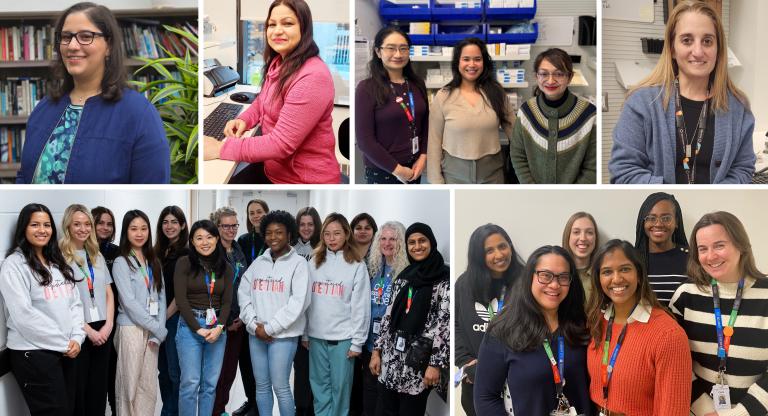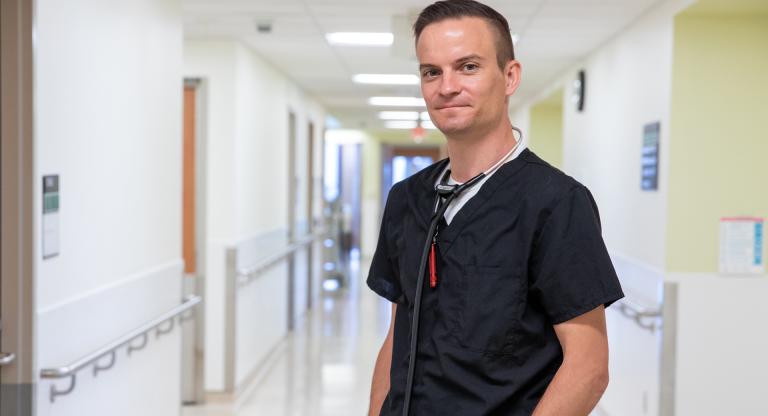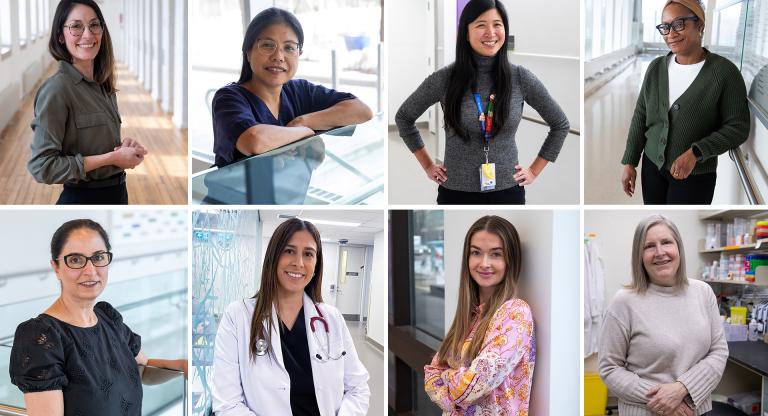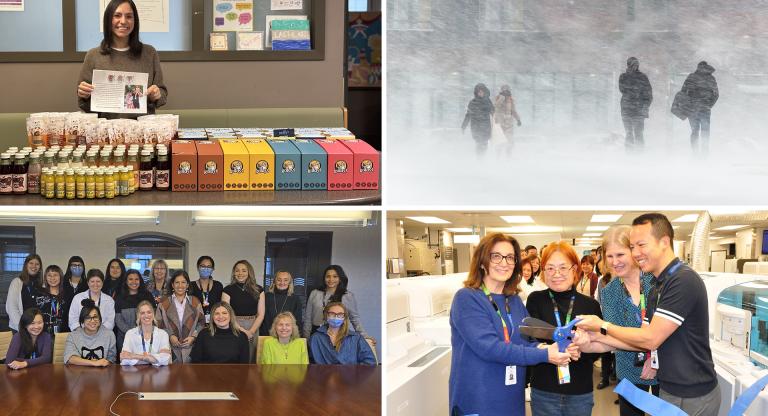Embracing new possibilities for complex care patients at Hennick Bridgepoint Hospital
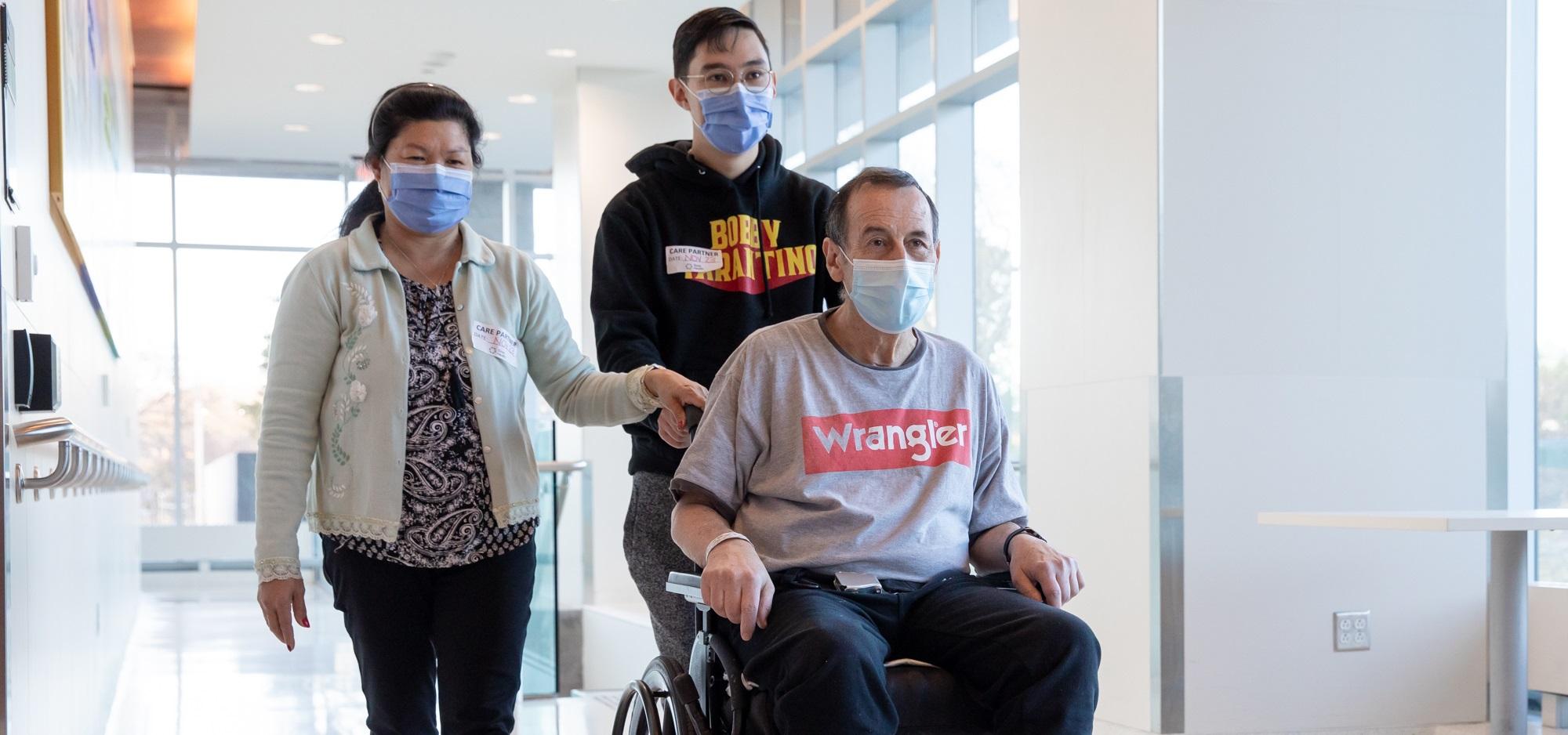
For many patients admitted to complex continuing care units, the hospital becomes their permanent home. Hennick Bridgepoint Hospital’s complex continuing care teams are pushing the boundaries in health solutions and helping patients embrace the possibility of life outside the hospital.
Patients admitted to complex continuing care often have breathing or feeding tubes or other care needs that are too complex for long-term care. “Historically, we did not think of discharge as a possibility for these patients,” says Rebecca Ramsden, Senior Clinical Program Director of Specialized Medicine and Complexity Care at Hennick Bridgepoint. “We’ve changed our approach and now want to consider every patient as having the potential for discharge. Whether a patient requires complex care for one year or 10 years, we never want to lose sight of that possibility.”
This change in thinking matches a shift in the broader health care system. There are growing options for patients with complex health needs, including assisted living, supportive housing and long-term care homes that are equipped for a more complex level of care.
Hennick Bridgepoint has adapted to this shift by forming partnerships with organizations that provide care and services to individuals with complex health needs. Members of the care team also start talking with patients and families about the possibility for discharge early in a patient’s stay.
The complex care program at Hennick Bridgepoint has also increased capacity for reconditioning, a type of physical rehabilitation that’s suited to complex patients because it’s less intense than typical rehab programs.
Juan Carlos Luaces is one patient who is benefitting from being on a unit that offers both specialized complex care and reconditioning all in one place.
It’s been almost 10 months since Juan Carlos was diagnosed with COVID-19. After spending months in intensive care and acute care, he was admitted to Hennick Bridgepoint to continue his recovery. Because of the reconditioning program, Juan Carlos says, “I can feel that I’m getting stronger. I’m now able to stand and I’m starting to work on walking with a walker. It’s important for me to be able to do more for myself.”
Nicole Allard, manager of two of Hennick Bridgepoint’s complex care units says the focus is always on quality of life and helping patients to be in the setting that best meets their needs. “Often there’s not only physical healing but emotional healing that needs to happen. In some cases we need to wait for a place to be available in another care setting. When a patient goes home we need to ensure that they and their families have the right supports in place. It’s a strong team effort and everyone on the care team needs to be engaged.”
Juan Carlos, his family and the care team have identified going back home as an attainable goal. This is likely still a few months away but he knows he will have a healing environment where he can make his best recovery and the care team will support him in this transition. For Juan Carlos and his family, this is life-changing care.









